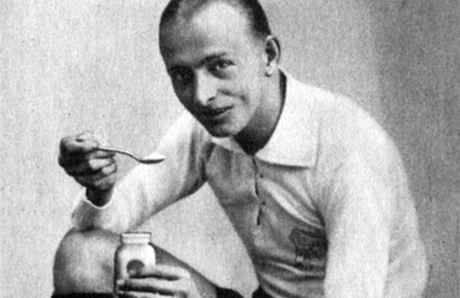Nowadays, when people mention "Mozart" on the football field, most fans may think of the Czech Rosicky, but in fact, the first person to be named such a "elegant number" was Matthias Sindrar, the representative of Austrian football in the 1930s.

Being born between the two world wars was probably the most regrettable thing for Sindrar and the Austrian team at that time. Between 1928 and 1933, Austrian football was called the "Uncrowned King", and even at that time they had been dubbed the "Magic Team", and Sindrar was undoubtedly the representative of the dream of Austrian football in that period.
Sindraer played for only two teams in his lifetime, one in Vienna, Austria, and the other for the Austrian national team, the diminutive center scored 26 goals in 43 appearances for the Austrian national team in his career, including in the 1934 World Cup, his brilliant dribbling and strong shots helped the team eliminate France and Hungary in a row, and in the semi-finals, they were blocked by the hosts with one goal from the final.
Nevertheless, in that period when the level of football was relatively single, Sindrar and Austrian football brought a very different aesthetic to the world.
On 3 April 1938, Sindrar played for Austria for the last time, not because he was going to quit the national team or retire, but because Austria had been occupied by the German Nazis, and this friendly match with Germany became the last time that Austria played as an independent team during that period. In the end, with goals from Sindraer and Karl Sesta, the Austrian retained the dignity of the football field with a victory.
Refusing to play for the German team, Sindrar became a thorn in the side of the German Nazis, and on January 23, 1939, the 35-year-old Sindrar and his girlfriend Castegnola committed suicide at their home in Austria, according to the official account of carbon monoxide poisoning.
A few years later, Sindraer was named Austria's Best Athlete of the Century, and FIFA posthumously recognized him as the best attacker before World War II.